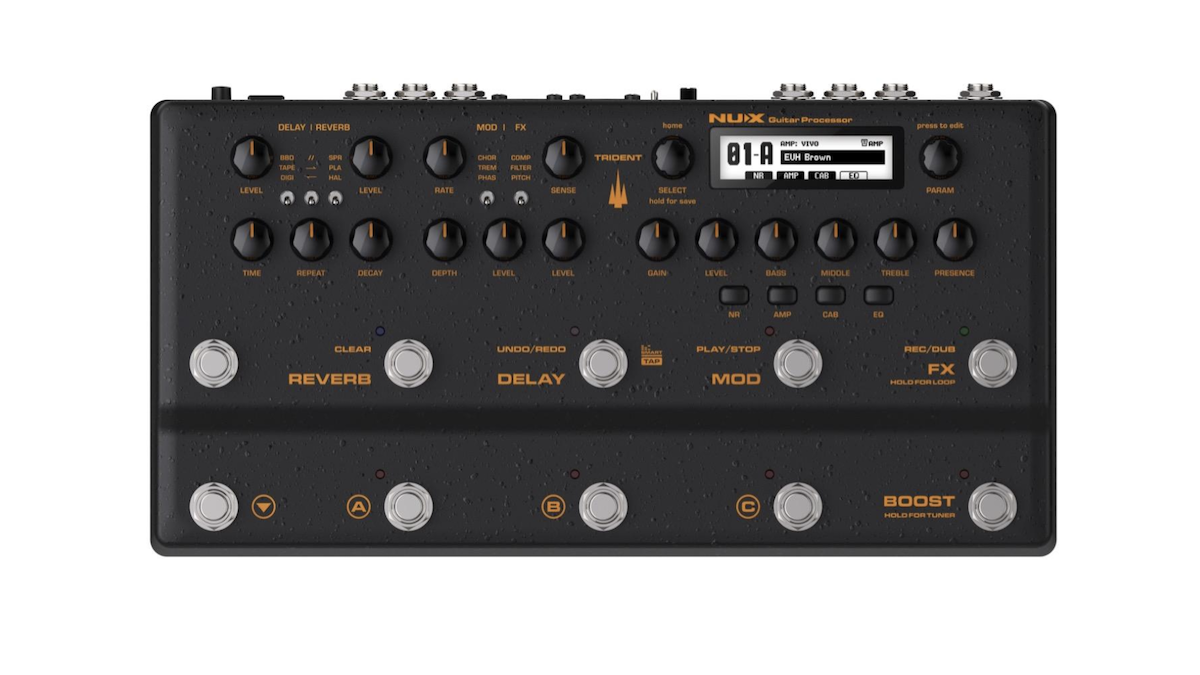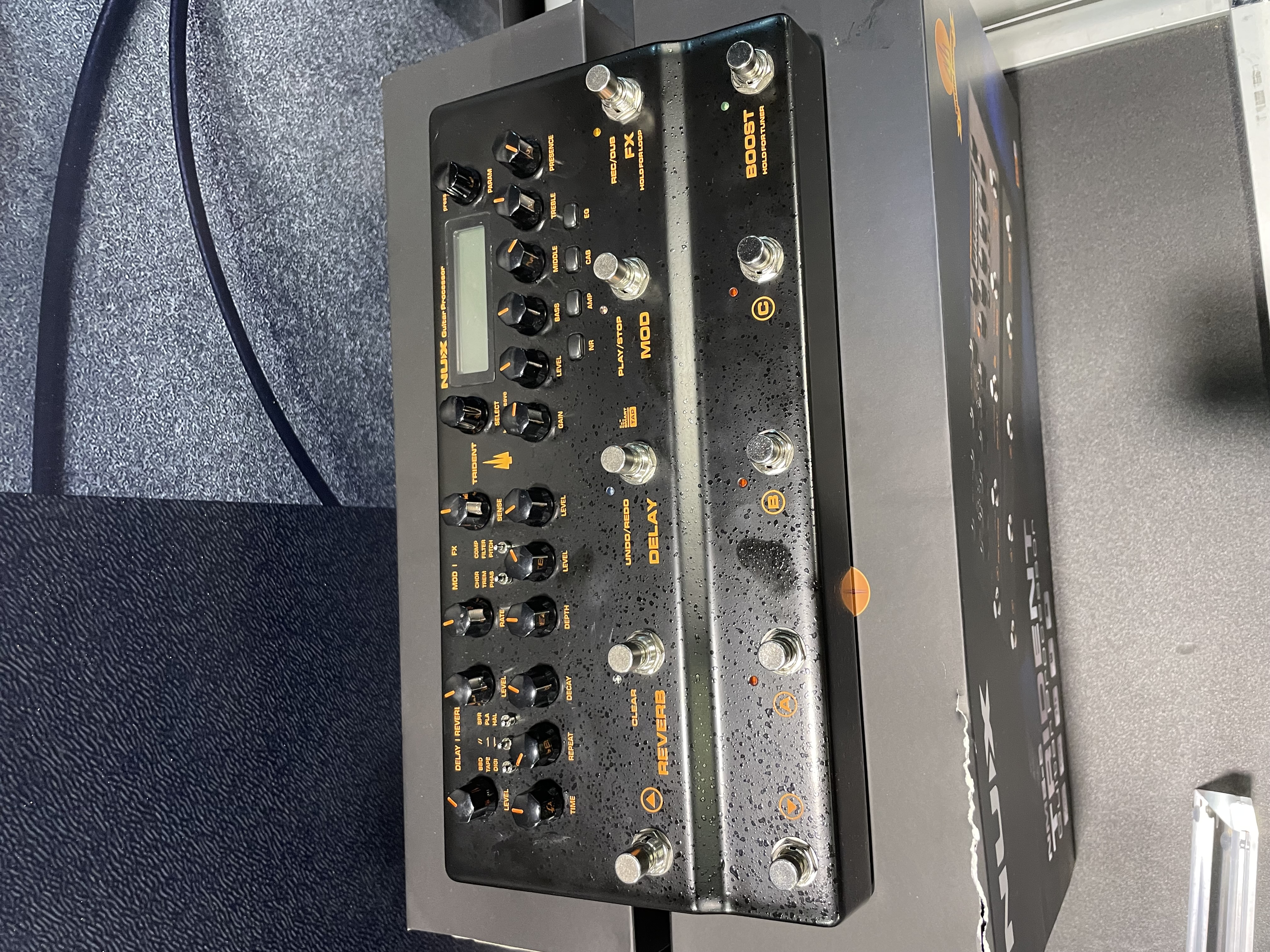
The Nux Trident NME-5 surfaced from the watery depths of development at NAMM 2023 and suggests that, yet again, Nux is a brand to watch for affordable but not cheap-sounding effects pedals. And in the constantly evolving guitar multi-effects market, it might stake a claim for the big contender when it comes to value.
I've got a Nux Atlantic reverb and delay pedal, so I know firsthand the quality the company can deliver for the money. While the sounds aren't a match for the stunning details of the £325 UAFX Del-Verb, they're still impressive and the feature-set is actually deeper in other areas. The shimmer and infinite sustain switches with parallel, series and order switches on the unit itself feel generous on a pedal that's currently £111 on Thomann. Now the Trident seems to be bringing that kind of attention to value to a much wider set of amp and effects features.
We like Rob Chapman's more back-to-basics approach demos on his channel lately, reminding us of how he carved out his reputation back in the day. He's taking the Trident through its paces above with a players' perspective. And he seems genuinely impressed – noting even something like the chorus pedal algorithm (with its extreme "riff generator" depth setting) is good enough for its own standalone stompbox.

In a world where multi-ex and amp modeller displays are getting bigger, the Trident's seems miserly and, dare we say, dated. But there's perhaps a good reason; it's put a lot of the pedal-style control knobs on the unit itself, Boss GT-style, meaning you have less need to scroll through menus.
The one-piece aluminium chassis Trident builds on Nux's Cerberus by offering amp models like its MG30, with an updated TSAC-4K modelling algorithm, but it doesn't have the latter's expression pedal, and the other demos we've seen so far fall into the dated trap of focussing on '80s-style higher gain Mesa and Marshall model workouts.
We need to hear more tasteful clean and low gain fare from the 27 models on offer – which is where the best amp modellers like the Neural Quad Cortex really show where the extra money goes. The Choptones demo above has some clean tones around the seven-minute mark but they're heavily modulated. Having the option to use four mic models and three positions for digital cabs is good for the stock IRs, but the option to load third-party impulse responses via the Trident's desktop editing software is where the serious potential is.
We'll be keeping a close eye on this one. In the meantime, we know the Nux Tident will be around $450 in the US, but we're seeing it in Europe priced at £332 for preorders over at Bax.







